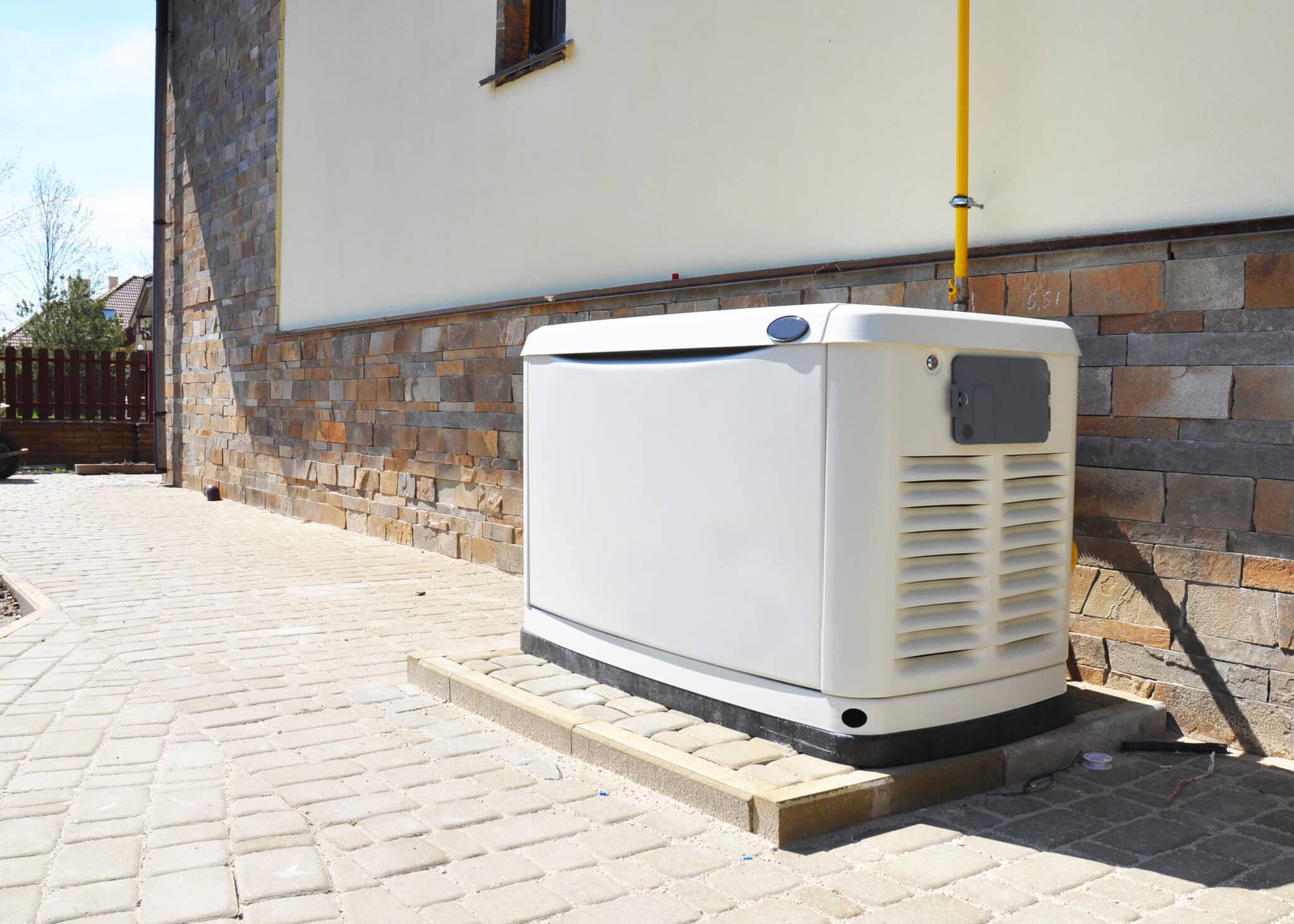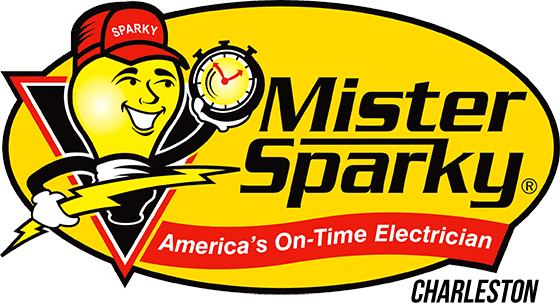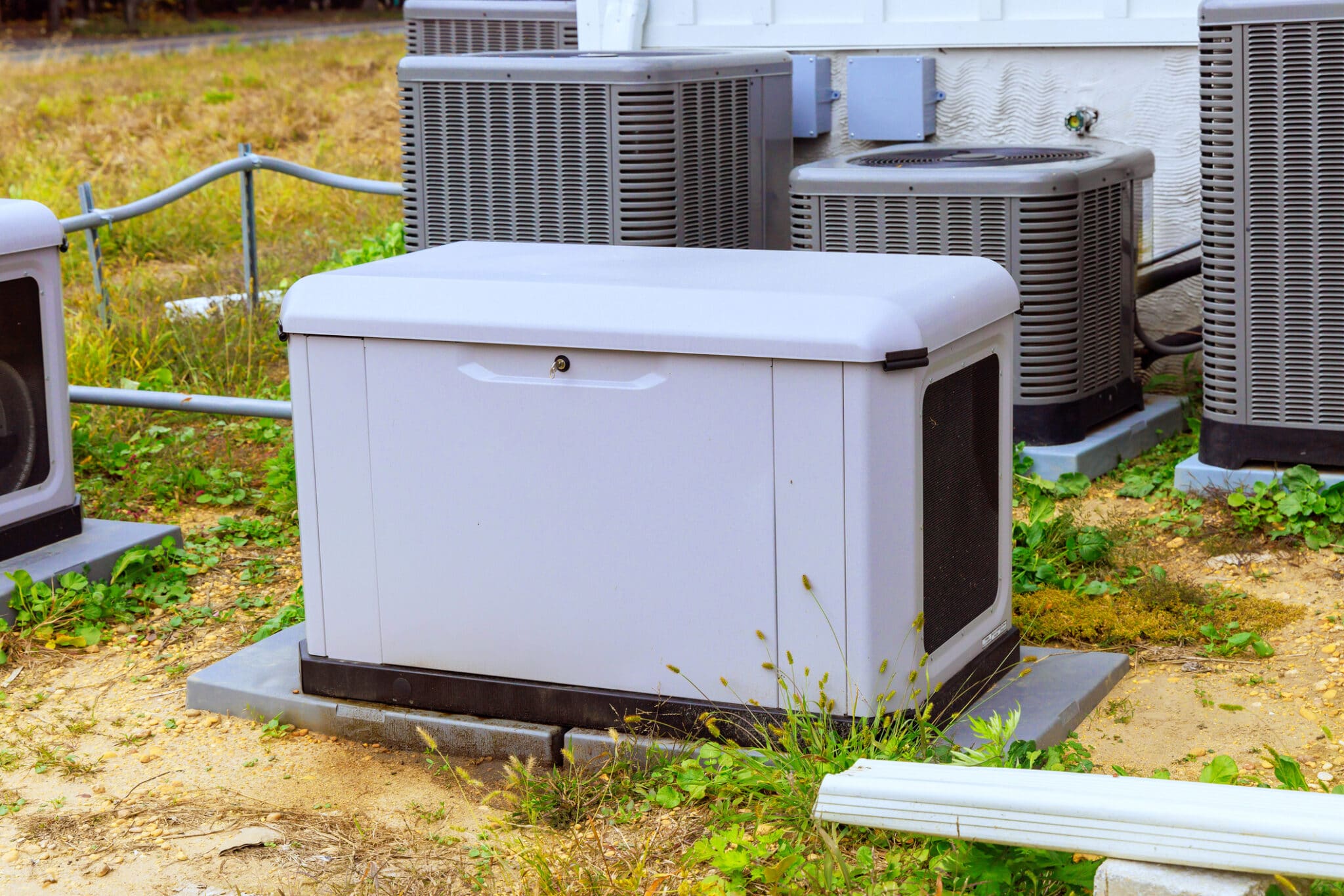A home generator is your safety net when the lights go out, especially in a city like Charleston, SC, where hurricanes, heavy rains, and power outages are all too common. In 2025, staying ahead of generator issues is more important than ever. Regular maintenance isn’t just about keeping your generator running; it’s about ensuring your home stays safe, your food stays cold, and your family stays comfortable during unexpected outages.
Many Charleston homeowners assume their backup generator is fine because it hasn’t been used recently. But just like a car that sits idle too long, a generator can develop problems when it’s not routinely maintained. This is particularly true in humid coastal environments where salt in the air can accelerate wear on mechanical parts.
That’s why Mister Sparky of Charleston, SC recommends having your home generator inspected annually, even if it seems to be running fine. Catching minor issues early can prevent major malfunctions later, especially when storms are in the forecast. As we head into spring, now’s the ideal time to prepare your generator for the demanding summer and hurricane season ahead.
In this post, we’ll walk you through the top five signs your home generator needs maintenance this year. If any of these sound familiar, it might be time to call a professional electrician and schedule a full inspection.
Sign #1: Your Generator Is Struggling to Start
One of the first warning signs your home generator needs maintenance is difficulty starting. Whether it’s taking longer than usual to power up or failing to start altogether, these issues can point to deeper problems under the hood.
In many cases, a sluggish start can be traced to a weak or failing battery. Like any other engine-powered machine, generators rely on strong battery connections and regular charging cycles. If the battery hasn’t been tested or replaced recently, it might not deliver enough power to start the generator, especially during colder or damp conditions common in Charleston.
Another possible cause is a clogged or dirty fuel system. Fuel can degrade over time, especially if it hasn’t been stabilized properly. Gunk in the fuel line or filter can choke the engine, preventing it from starting efficiently. Additionally, worn spark plugs or corroded ignition components can also interfere with the ignition process, leaving you in the dark when you need power most.
Charleston’s humid climate can accelerate corrosion, particularly if your generator is stored outdoors without adequate protection. That’s why professional inspections are so important. A professional technician from Mister Sparky of Charleston, SC can perform a thorough diagnostic check to identify the exact issue and recommend the right solution.
If your generator hesitates or fails to start, don’t wait for a total breakdown. Early attention can help extend the lifespan of your system and ensure it works when you need it most.

Sign #2: Inconsistent Power Output
If your home generator is running but the lights inside your home are flickering or electronics aren’t getting steady power, that’s a red flag. Inconsistent power output is more than just a nuisance, it can cause serious damage to your appliances and sensitive electronics.
This issue usually points to problems with the generator’s voltage regulation system. When the generator struggles to maintain stable voltage, it can result in surges or drops in power. These fluctuations can damage devices and indicate that the internal components of your generator are wearing down or out of sync. Over time, this inconsistency can even shorten the life of your electrical system.
In Charleston, SC, homes often experience more wear on generators due to storm-related outages and extended use during hurricane season. When generators work overtime, their parts are more likely to develop faults. That’s why it’s so important to test for steady power output, especially before the stormy months hit.
At Mister Sparky of Charleston, SC, certified electricians use professional-grade equipment to evaluate your generator’s output and ensure it delivers a consistent flow of electricity. They’ll also inspect your transfer switch, wiring connections, and voltage regulator to catch any issues before they escalate.
Don’t ignore flickering lights or devices shutting off randomly. If you notice signs of unstable electricity during generator use, it’s time to schedule a maintenance check. Your home’s safety and comfort rely on a generator that performs reliably every time.
Sign #3: Unusual Noises or Vibrations
Your home generator should run with a steady, low hum. So, if you begin to notice loud bangs, grinding, rattling, or shaking during operation, it’s a clear sign something’s not right. Unusual noises and excessive vibration can point to mechanical issues that need immediate attention.
These sounds often signal loose components, failing bearings, or unbalanced engine parts. Vibrations can also cause further damage over time, loosening connections and wearing down mounts or brackets. Left unchecked, even minor mechanical problems can lead to costly repairs or total generator failure.
In coastal areas like Charleston, SC, salt in the air and high humidity levels can increase wear on metal parts. Rust or corrosion might be causing moving parts to seize or grind, creating that noise you’re hearing. It’s one of the most common issues seen in generators that haven’t had routine maintenance, especially those kept outdoors without protection.
A certified electrician from Mister Sparky of Charleston, SC can isolate the cause of those sounds quickly. Whether it’s a loose bolt or something more serious, they’ll take steps to repair and realign the unit to restore quiet and efficient operation.
Remember, your generator isn’t supposed to draw attention to itself. If it’s making a racket or shaking more than usual, it’s trying to tell you something. Scheduling an inspection now can help you avoid bigger issues down the road and ensure everything stays secure and smooth-running.
Sign #4: Error Codes or Warning Lights
Modern home generator systems are designed with built-in diagnostics that help alert you when something isn’t working properly. If you’re seeing blinking lights, error codes, or warning displays on your generator’s control panel, don’t ignore them, these signals are your generator’s way of asking for help.
Each brand and model has its own set of error codes, but many of them point to common issues like low oil pressure, overheating, or system faults. While it might be tempting to reset the system and hope for the best, that won’t fix the root problem. Persistent alerts or returning codes often require professional attention to avoid more serious damage.
In coastal regions like Charleston, SC, generators face extra wear from moisture and salt exposure. Sensors and control panels can become more prone to corrosion or malfunction. That’s why it’s crucial to act quickly when warning lights appear,delaying service could lead to a shutdown right when you need power most.
Mister Sparky of Charleston, SC has the tools and expertise to read diagnostic codes and perform a full system evaluation. Their professional electricians understand how to interpret alerts across various generator models, ensuring problems are addressed correctly the first time.
Treat your generator’s warning lights like a check-engine light in your car. It’s always better to get it checked before it becomes an emergency. Professional servicing ensures your generator stays safe, reliable, and ready when Charleston’s unpredictable weather hits.
Sign #5: It’s Been Over a Year Since Your Last Inspection
Even if your home generator seems to be working fine, going more than a year without a professional inspection can put your system at risk. Like any engine-powered equipment, generators need routine checkups to catch minor issues before they turn into major failures.
Manufacturers typically recommend annual maintenance to ensure everything from oil levels to filters and electrical components are in good shape. Skipping a yearly inspection can lead to unnoticed wear and tear, especially if the generator hasn’t run much in recent months. Just because it hasn’t been used doesn’t mean it’s in top condition.
This is especially important in Charleston, SC, where local conditions can quietly wear down equipment. High humidity, salt air, and severe weather can affect electrical connections, fuel systems, and batteries, often in ways that aren’t obvious until the unit is tested under load.
Mister Sparky of Charleston, SC encourages homeowners to schedule generator maintenance before hurricane season begins. March is an ideal time to prepare, giving you peace of mind before summer storms arrive. Their expert electricians perform detailed inspections and system tests, helping to extend the life of your generator while ensuring it’s ready for anything.
If it’s been over a year since your last service, or you can’t remember when it was, don’t wait. A proactive maintenance visit today could prevent unexpected problems tomorrow.
The Impact of Coastal Weather on Home Generators in Charleston
Living in Charleston, SC, means enjoying coastal charm, but it also means preparing for intense weather. Humidity, salt air, and tropical storms can all take a toll on your home generator over time. If your generator isn’t maintained regularly, the coastal environment can lead to faster deterioration and unexpected breakdowns.
Salt in the air is highly corrosive. It can eat away at metal components, wiring, and even the housing of your home generator, especially if the unit is stored outside without protection. Rust and corrosion are more than cosmetic issues, they can interfere with electrical connections and mechanical performance. This is why homeowners in coastal areas must stay extra vigilant about maintenance.
Humidity is another concern. It can cause condensation inside your home generator, which may lead to short circuits, moisture damage, or electrical faults. Over time, even internal components that are typically shielded can be affected. Without routine inspections, these conditions can go unnoticed until your generator fails during a critical moment.
Storms bring their own risks. Power surges, flooding, and debris can damage your home generator, and each of these problems needs a professional inspection to be properly addressed. Mister Sparky of Charleston, SC understands the unique weather challenges local homeowners face and offers services tailored to protect your investment.
To keep your home generator reliable year-round, it’s essential to work with experts who know how Charleston’s climate affects backup power systems. Preventive care and timely repairs ensure your generator stays strong through every season.
Why Choose Mister Sparky of Charleston, SC for Generator Maintenance
When it comes to maintaining your backup power system, experience and local expertise make all the difference. Mister Sparky of Charleston, SC stands out as a trusted name in electrical service, providing dependable maintenance tailored to the Lowcountry’s unique climate and weather patterns.
Their professional electricians understand how Charleston’s salty air, high humidity, and storm season can affect generator performance. That regional knowledge allows them to spot potential problems that a general technician might overlook. From inspecting electrical connections to testing voltage output and checking for corrosion, their team takes a thorough, proactive approach during every service call.
Mister Sparky is known for punctual, professional service backed by a satisfaction guarantee. They take the time to explain what they’re doing, why it matters, and how it helps extend the life of your system. Homeowners appreciate their clear communication, honest recommendations, and no-pressure approach to service.
What really sets them apart is their commitment to safety and long-term reliability. A poorly maintained generator can pose electrical hazards or fail when you need it most. That’s why their team uses industry-standard tools and follows the latest safety guidelines for every inspection and repair.
By choosing Mister Sparky of Charleston, SC, you’re not just hiring an electrician, you’re partnering with a team that genuinely cares about protecting your home and family. Whether your equipment is brand new or several years old, they’ll help ensure it’s running smoothly, safely, and ready for whatever comes next.
Key Questions to Ask Your Electrician About Generator Maintenance
Staying ahead of issues with your home generator starts with asking the right questions. A quick conversation with your electrician can help you avoid unexpected breakdowns, improve efficiency, and extend the life of your system. If you live in Charleston, SC, and are preparing for storm season, now is the best time to get answers that matter.
Here are several key questions to ask during your next home generator maintenance appointment with Mister Sparky of Charleston, SC:
- When was the last time this home generator was serviced?
If you’re unsure about the maintenance history, your electrician can evaluate its condition and recommend a schedule based on age, fuel type, and how often your home generator is used. Regular servicing keeps your system dependable year-round. - What does your home generator maintenance checklist include?
A detailed inspection should involve checking battery voltage, inspecting fuel lines, changing oil and filters, testing the transfer switch, and running load simulations. Understanding the full scope of the maintenance process helps you ensure nothing is overlooked. - Are there visible signs that my home generator may be failing?
Ask your technician to point out warning signs like frayed wiring, corroded parts, fluid leaks, or unusual sounds. Identifying these issues early prevents bigger problems down the road and keeps your generator reliable in emergencies. - What steps can I take to keep my home generator ready between service visits?
Electricians can show you safe, simple ways to keep an eye on your system. Ask if regular self-tests, remote monitoring, or visual inspections are recommended for your particular generator model. - Do you service the brand of home generator I currently use?
Brands vary in maintenance needs. Confirming your electrician has experience with your model ensures accurate servicing and quick diagnostics.
By asking these questions, you’re taking a smart, proactive approach to home generator care, especially before Charleston’s storm season kicks into high gear.

FAQs About Home Generator Maintenance
1. How often should I maintain my home generator?
Most electricians recommend servicing your home generator at least once a year. However, if you use it frequently or live in an area like Charleston, SC with regular storms, you may need bi-annual checkups. Regular maintenance keeps your system reliable and extends its lifespan.
2. Can a generator fail without warning signs?
Yes, it can. While many generators show warning signs like odd noises or power fluctuations, some issues, like battery failure or clogged fuel lines, can occur silently. That’s why preventive maintenance is so important. A professional electrician can catch small issues before they cause full system failure.
3. What’s included in a typical maintenance check?
A standard service visit usually includes checking the oil, fuel system, battery, and air filters. Electricians also inspect wiring, run performance tests, and ensure your generator can handle its expected load. Mister Sparky of Charleston, SC follows a detailed checklist tailored to your generator’s brand and usage.
4. Is it safe to test the generator myself?
While it’s okay to check if your generator powers on, leave detailed inspections to professionals. Testing fuel lines or adjusting electrical components can be dangerous without proper training. Trusting certified electricians helps you avoid injury and protects your generator warranty.
5. What brands of generators does Mister Sparky service?
Mister Sparky of Charleston, SC services most major home generator brands, including Generac, Briggs & Stratton, Kohler, and more. Their electricians are trained to handle a wide range of models, ensuring your system receives expert care regardless of the brand.






